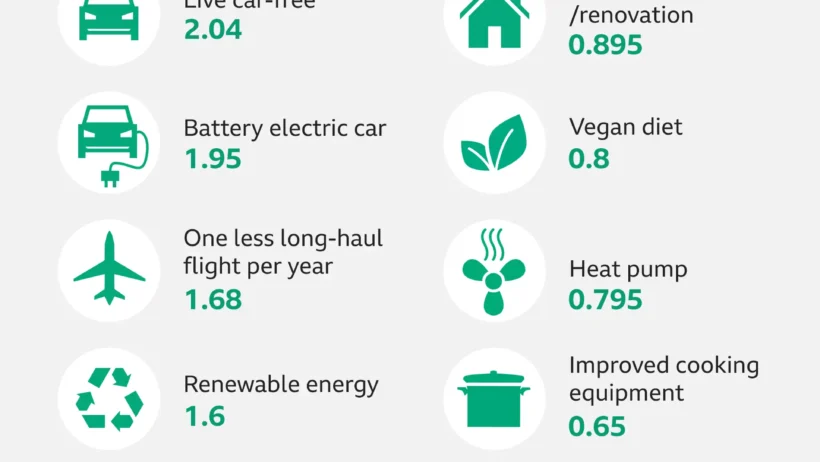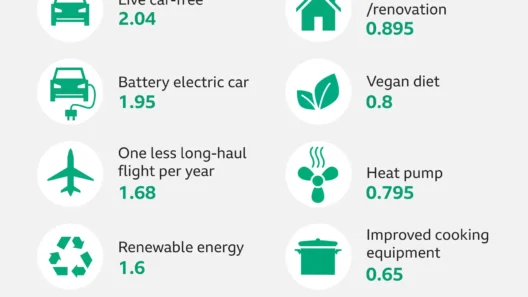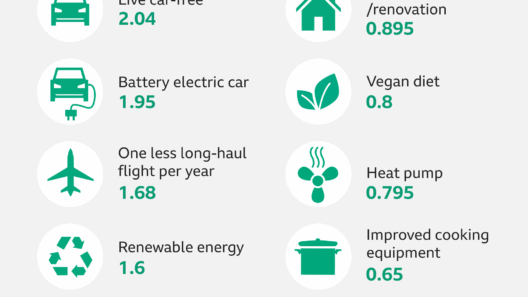Global warming is an urgent and pressing issue that affects every person on the planet. As temperatures rise, we face widespread consequences: from increasingly severe weather patterns to rising sea levels threatening coastal cities. While it may seem daunting to combat such a massive crisis, there are pragmatic steps that individuals can take to significantly lessen global warming. Below, we will explore actionable strategies that can empower everyone to contribute to a more sustainable future.
Recognizing that small, consistent efforts can accumulate to create a substantial impact is essential. The journey toward mitigating climate change begins with individual choices and extends to collective action. Here’s how you can make a difference.
Everyday choices matter
One of the easiest ways to lessen global warming is by making conscious decisions about consumption. From the food on your plate to the energy in your home, being mindful of your everyday choices can have a ripple effect.
Mind your food choices
Food production is a significant contributor to greenhouse gas emissions. Consider adopting a diet that prioritizes plant-based foods. Reducing meat and dairy consumption can lower your carbon footprint substantially. Research has shown that beef production, in particular, generates more emissions per calorie than plant-based foods. Incorporating more fruits, vegetables, and grains into your meals not only benefits the planet but also your health.
Embrace local and seasonal produce
When shopping for groceries, opt for local and seasonal produce. Food that is grown nearby typically requires less transportation, which translates to lower carbon emissions. Moreover, seasonal fruits and vegetables are often fresher, tastier, and more affordable than their out-of-season counterparts. Exploring local farmers’ markets can also be an uplifting experience that strengthens your connection to your community and the environment.
Rethink water usage
Water conservation is another crucial element in reducing global warming. The energy required to heat water contributes to greenhouse gas emissions. Simple actions like taking shorter showers, fixing leaks, or using water-efficient appliances can help mitigate this issue. Furthermore, being mindful of your water use in the garden by adopting drought-resistant plants and native species can greatly reduce the demand for irrigation.
Transforming your transportation habits
Your mode of transportation has significant implications for your carbon footprint. By re-evaluating how you travel, you can make a meaningful change.
Choose alternative transportation
Whenever possible, walk, bike, carpool, or use public transportation instead of driving alone. Bicycling and walking are not only eco-friendly but also promote physical health. Public transit systems, though needing improvements in many places, are also typically far more efficient than single-occupancy vehicles. For longer distances, consider train travel, which tends to have a lower carbon output compared to airplanes.
Invest in energy-efficient vehicles
If purchasing a new vehicle, consider an electric or hybrid option. These vehicles emit significantly fewer emissions than traditional gasoline-powered cars. The initial investment may seem higher, but the savings on fuel and maintenance, along with potential tax incentives, can be beneficial in the long run. Additionally, make sure to keep your vehicle maintained; regular check-ups can optimize fuel efficiency.
Rethinking energy consumption at home
Your home’s energy usage is another crucial area where you can make impactful changes. From heating to electricity use, consider options that lead to greater efficiency and lower emissions.
Improve energy efficiency
Upgrade to energy-efficient appliances that consume less electricity and water. Look for those with ENERGY STAR labels, which indicate maximum efficiency. Insulating your home can also minimize the energy required for heating and cooling, significantly reducing your utility bills and carbon output. Switch to LED lighting, which uses a fraction of the energy that incandescent bulbs consume while lasting longer.
Explore renewable energy sources
If feasible, consider installing solar panels or purchasing renewable energy from your utility company. Solar energy is a clean, inexhaustible source that can power your home and even reduce energy expenses over time. By supporting clean energy initiatives, you are not only contributing to a more sustainable future but also encouraging markets to shift toward renewable sources.
Advocating for change
Individual actions are powerful, but systemic change is necessary to truly combat global warming. Advocacy plays a crucial role in supporting legislation focused on climate action.
Engage with local community initiatives
Join or support local environmental groups working to promote sustainability and eco-friendly policies. Participate in clean-up events or tree-planting initiatives, which enhance local ecosystems while fostering community spirit. Volunteering can provide a platform for education and awareness, inspiring others to take similar actions in their lives.
Support sustainable businesses
When possible, choose to buy from companies committed to sustainable practices. Research businesses that prioritize eco-friendly materials, ethical labor practices, and transparent supply chains. Your purchasing decisions can influence market trends, ultimately encouraging companies to adopt greener initiatives.
Engaging in political discourse
Take time to learn about local and national policies impacting climate change. Vote for candidates who prioritize environmental issues and policies. Engaging in political advocacy ensures that voices demanding action on climate change are heard and considered in crucial decision-making processes.
In conclusion, while the challenge posed by global warming can seem overwhelming, the power to create meaningful change rests in the hands of each individual. By making informed choices in daily life, advocating for sustainable practices, and supporting regulatory measures, it is indeed possible to lessen the impact of global warming. Small steps, when multiplied by millions, can lead to monumental changes. Embrace the opportunity to be part of the solution for a better and healthier planet for generations to come.







